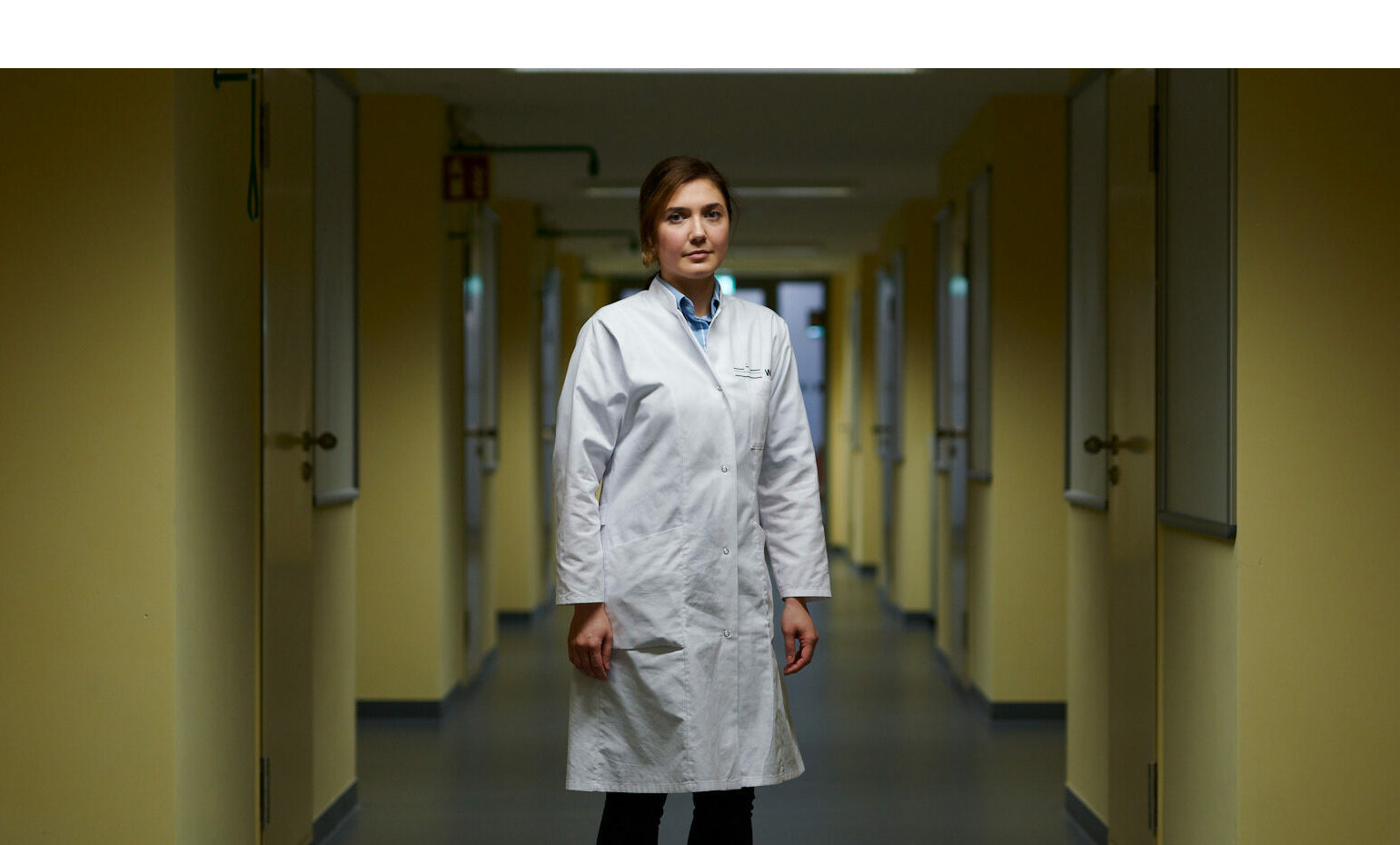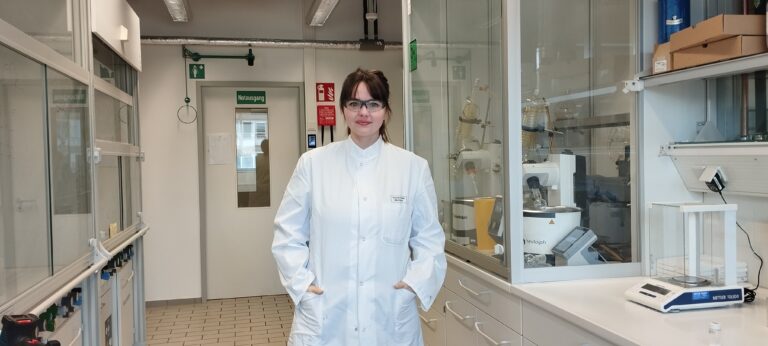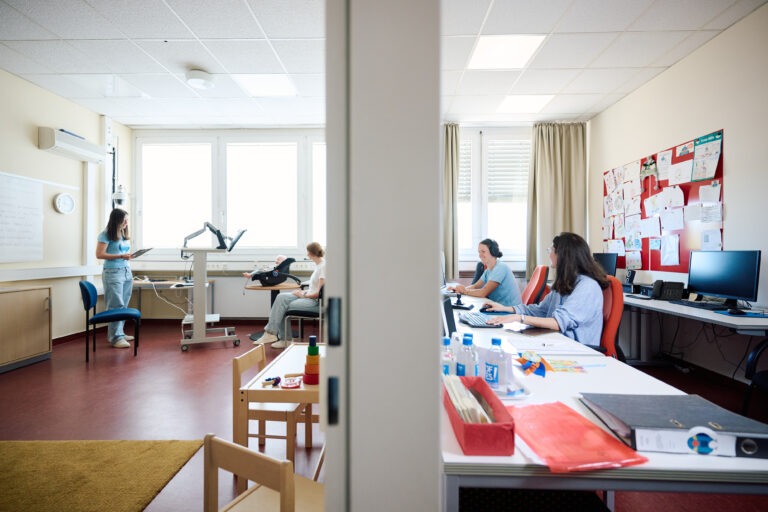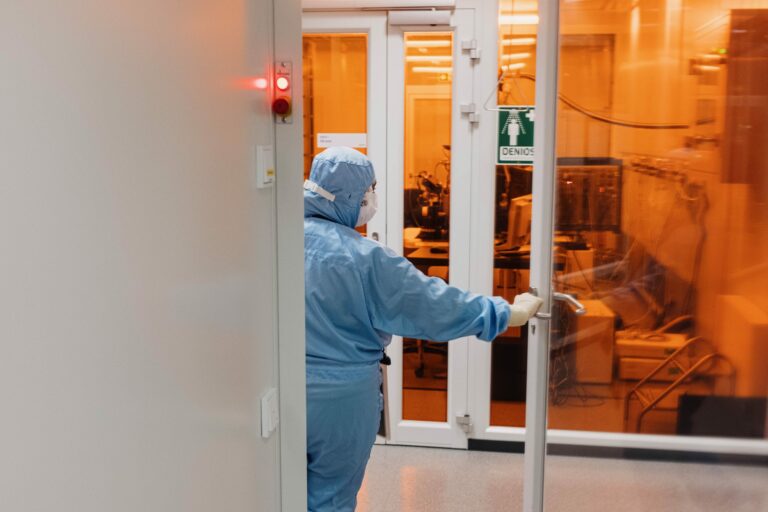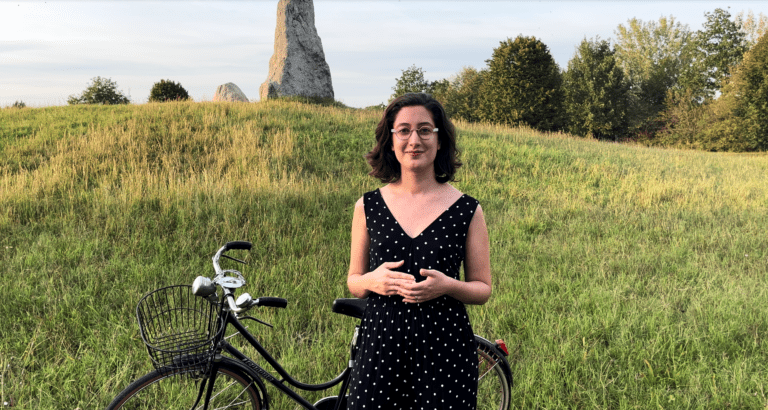
An Interview with Dr Ruxandra Chira: Peek into the World of Pharmacy and Analytical Chemistry
In the series “33 questions” we introduce, in no particular order, our WiRe Fellows who are currently working on a research project here at the University of Münster. Why 33? Well, if we think of the rush hour of life, it is kind of the age that lies in its middle. And we also like the number😉.
In today’s episode, we are speaking with Ruxandra, Analytical Chemist – let’s see what she has to say!
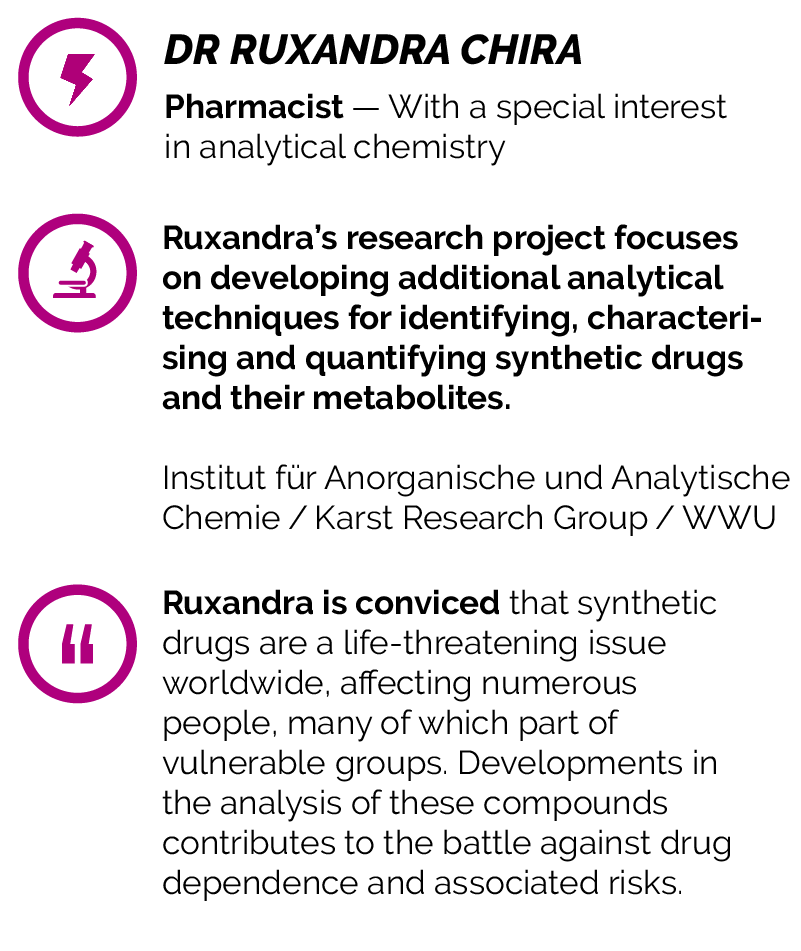
1. What motivated you to work in the field of Analytical Chemistry?
Out of the eight types of chemistry that we studied at the Faculty of Pharmacy I liked Analytical Chemistry most. It felt more tangible, as you could analyze samples and had to make connections in order to identify components – sort of like being a detective! It also requires being capable of coordinating the instruments in the lab to work in your best interest.
2. Describe your daily work in three words.
Planning. Measurements. Creativity.
3. Describe your research topic in three words.
Simulating metabolic pathways.
4. A good analytical chemist needs…?
A strong imagination, creativity but also a lot of patience.
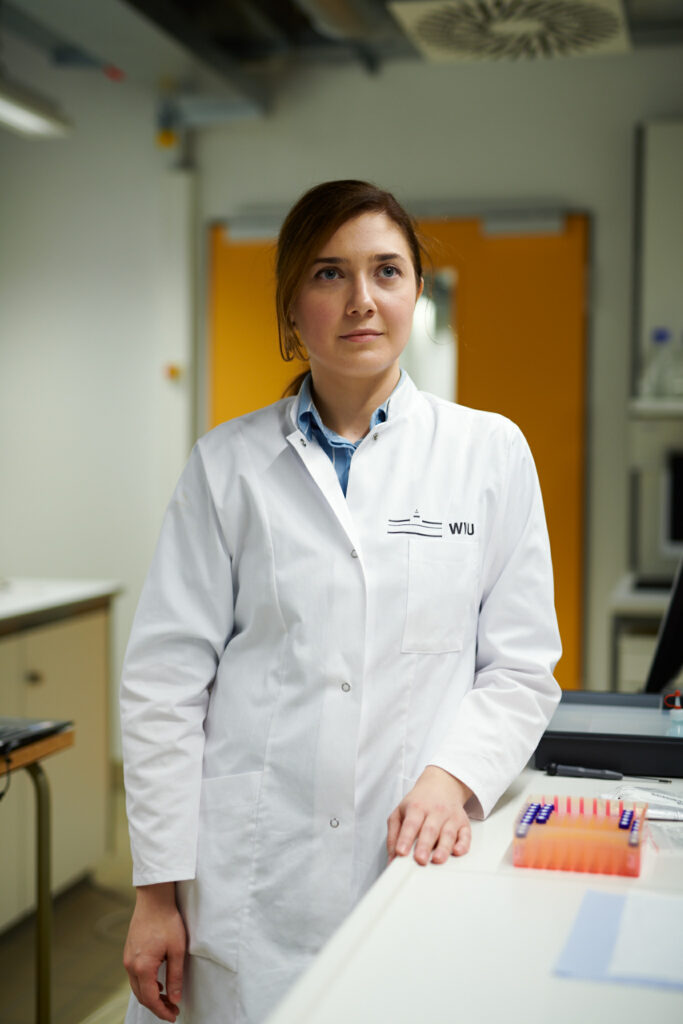
© Nikolaus Urban // WiRe
5. What is the best experience you have had as a scientist/researcher?
It was a great experience when I finally defended my PhD thesis. It has been a long journey in which I had to overcome a lot of things that didn’t work as expected, so that day is nice to remember.
6. What was your biggest research disaster?
When things don’t work out or they take way too much time to conclude it might feel like a disaster at the time, but all in all I can’t think of a true research catastrophe. Keeping a higher level perspective on things and having support from colleagues helps with overcoming such circumstances.
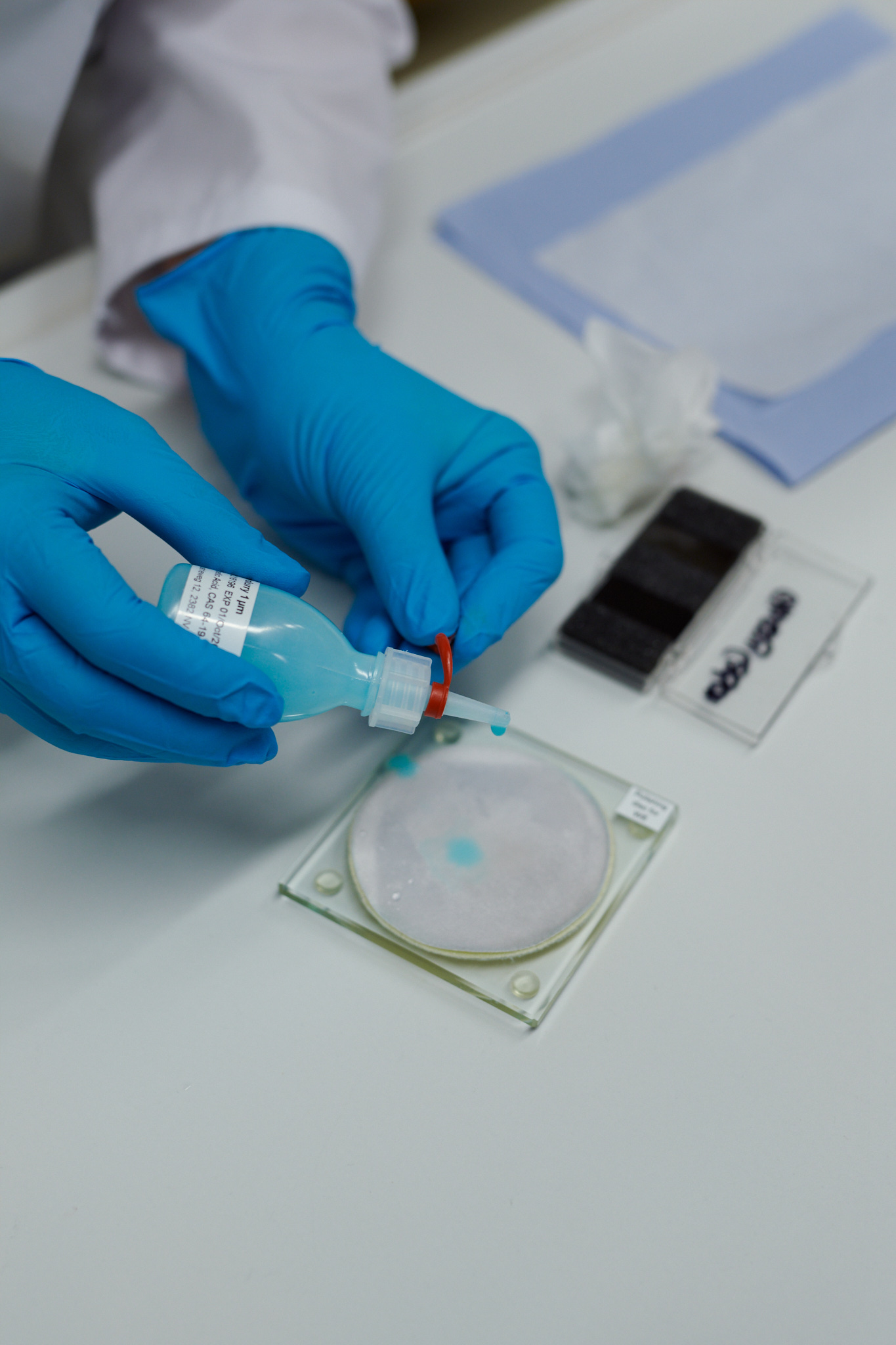
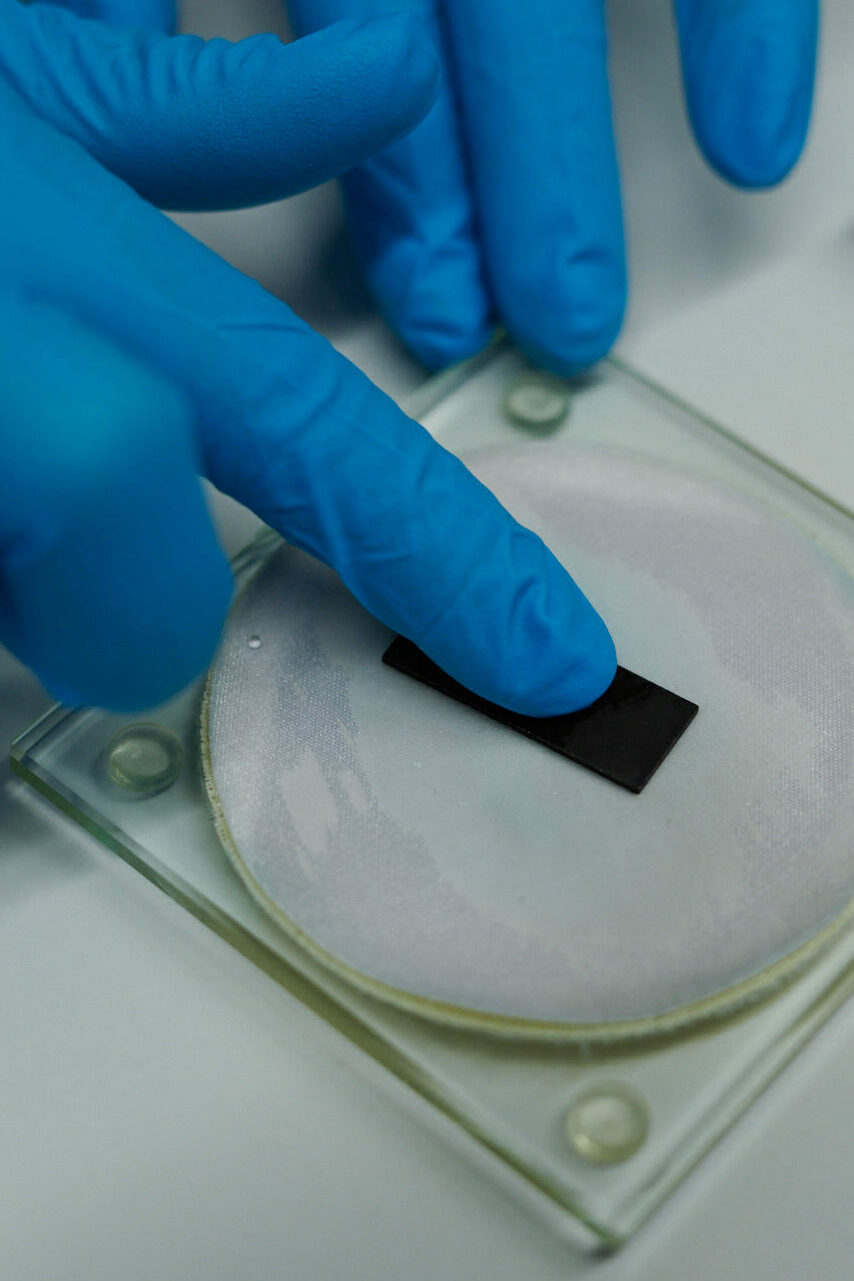
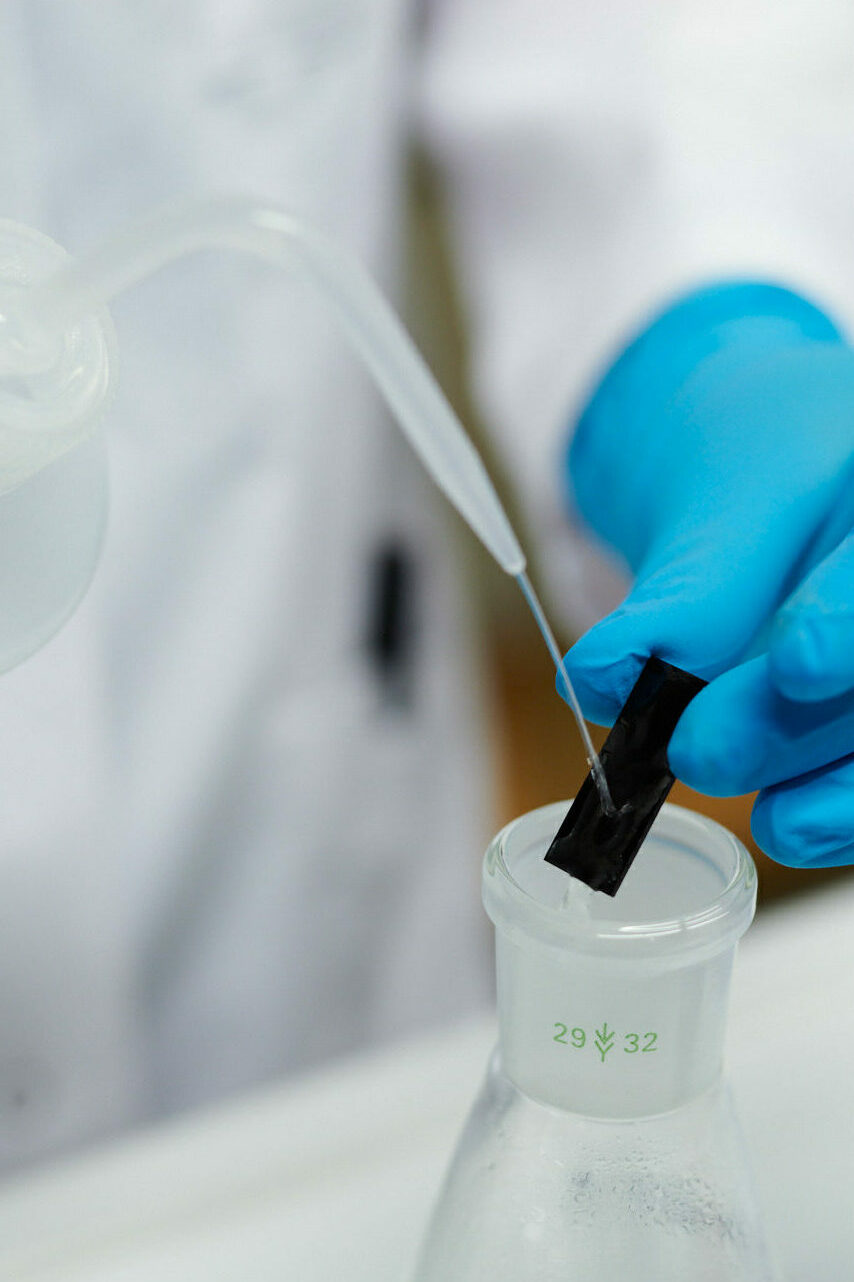
7. Which (historical) important scientist would you like to have dinner with? What would you ask?
I would like to have dinner with Albert Sabin and Jonas Salk, who in the 1950s each developed a vaccine to combat the dreaded disease polio. I would ask how hard their work was, given the resources of the time and the fact that work needed to be done under pressure in order to find a vaccine as soon as possible (similar to our recent experience with the COVID-19 pandemic). Their research contributed to the eradication of a disease that had been killing children or leaving them crippled for life. I find it impressive that they did not focus on financial gains, making the vaccines available worldwide and still saving lives to this day.
8. If time and money were no object: Which research project would you like to do?
Drawing from my experience as a pharmacist, I would like to find ways to optimize the accessibility and costs of medical care, since, unfortunately much is still out of reach for so many people on our planet.
9. What is your favourite research discipline other than your own?
I like reading about research from the medical field, particularly microbiology.
10. What do you consider the greatest achievement in the history of science / your field?
The discovery of antibiotics – it was a turning point in the history of medicine, allowing doctors to treat many previously life-threatening illnesses, leading to the saving of millions of human lives.
11. Which experience in the world of science disappointed you most?
Sometimes it seems that there is an ongoing competition of publishing more than the others, amassing impact factor values, sometimes even choosing topics or abandoning research projects according to this issue, and not to the actual societal needs.
12. What was the funniest moment you had in science?
I remember one day at the university when we had to prepare experiments for 10-year-old children from local schools. It was so funny for me and my colleagues (we previously only had been working with students) to see children’s reaction in the chemistry lab when seeing the “volcano reaction”, colorful liquids and flames or the “elephant toothpaste”. It’s so much easier to make chemistry interesting for children compared to university students!
13. What direct or indirect relevance does your research have for society?
The societal impact of this research project is given by the development of fast, efficient, low cost methods for the identification of complex structures of synthetic drugs and their metabolites.

14. How did you imagine the life of a scientist/researcher when you were a high school student?
Back then I thought researchers likely spend most of their life in a laboratory and have a somewhat boring life.
15. Is it actually different? In what way?
It’s different because of the variety of tasks. In research, conducting experiments is just part of the work. You need to always have in the back of your mind the general picture of the direction to which your research project is heading to; it requires a lot of planning, however also searching for alternative ways of working when things do not go as planned. Which is often!
Sharing and communicating results is a demanding task: writing articles, participating at conferences, trying to make your work accessible to a large variety of listeners, some more experienced than you, others just at the beginning of their studies or career. In addition, working with students is a demanding but rewarding part of the journey. I would say it is a job that in time teaches you how to adjust fast to different environments, communicate well and work effectively in diverse teams.
16. What do you like most about the “lifestyle” of a scientist? And what least of it?
The opportunity to work on a quite flexible schedule and use flexibility in approaching work. For instance, there are days when you are more inspired to write an article or grant application compared to others, which might be more suitable for experimenting or data analysis. On the downside, the fact that you cannot in the short term see the actual impact of your work could be a bit disheartening – however keeping the longer term perspective helps.

17. Do you think your career would have evolved differently if you were a man?
The decisions we make are influenced by so many things such as previous study and work experience, general background, gender, social pressure, so it’s hard to say if gender itself would have lead me to follow a different path. I consider myself lucky to live in the European Union, where there has been great progress concerning equal opportunities for women and men alike.
18. If you were the research minister of Germany, what would you do to improve the situation of women in science?
I would put efforts into encouraging women to restart their scientific careers. There are highly trained women that because of maternal leave, young children care, a PhD that takes too long to complete, lack of funding, lack of academic positions, too long distances to handle, social pressure or other reasons abandon their careers in research and choose other, more convenient jobs. I think that more practical support for women is needed, such that the time and money invested in their training, and more importantly their personal potential, is not wasted.
19. If you had a daughter, what would you advise her not to do?
I would advise her never to let her decisions be influenced by fear of failure.
20. How would you explain your research area and topic to a child?
I would tell them that when they become sick, they get medicine to feel better. Inside their body the medicine travels a long way, and is transformed by getting a superhero costume so that it becomes strong enough to reach that part of the body that needs healing. In the laboratory we try to test medicines for superhero powers and conduct experiments so that we can understand their journey through the body, without disturbing the superhero medicine or the child that receives it.
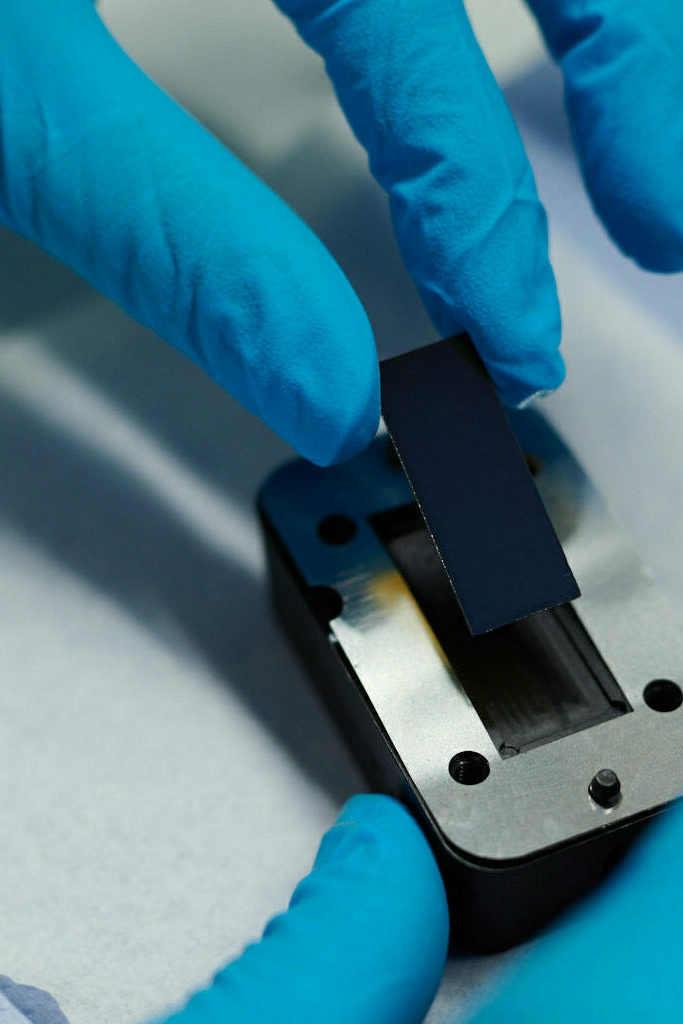
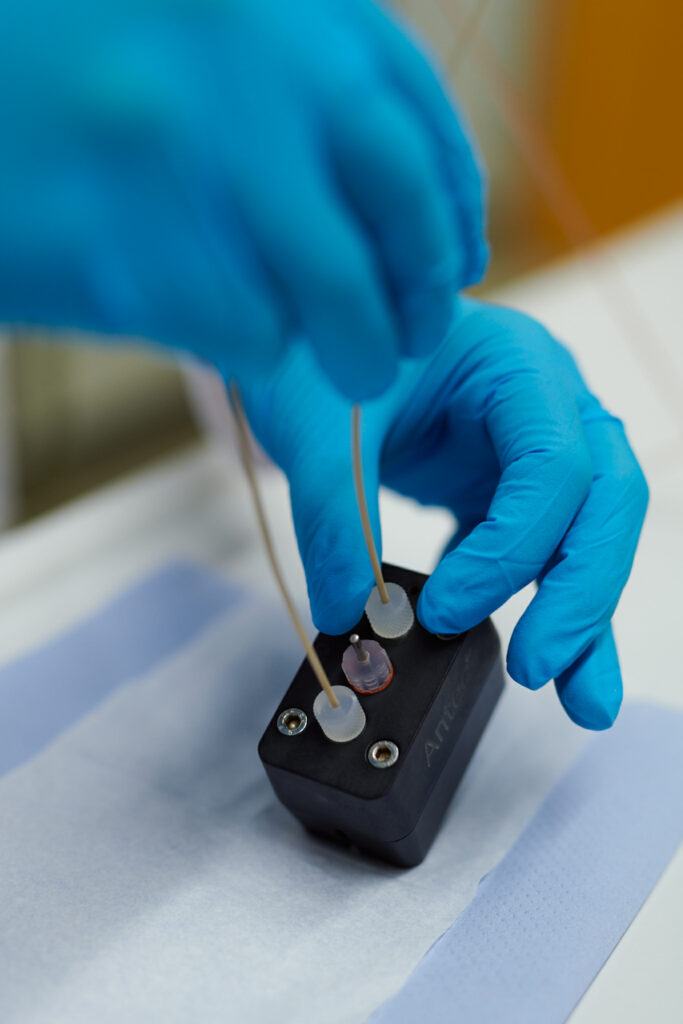
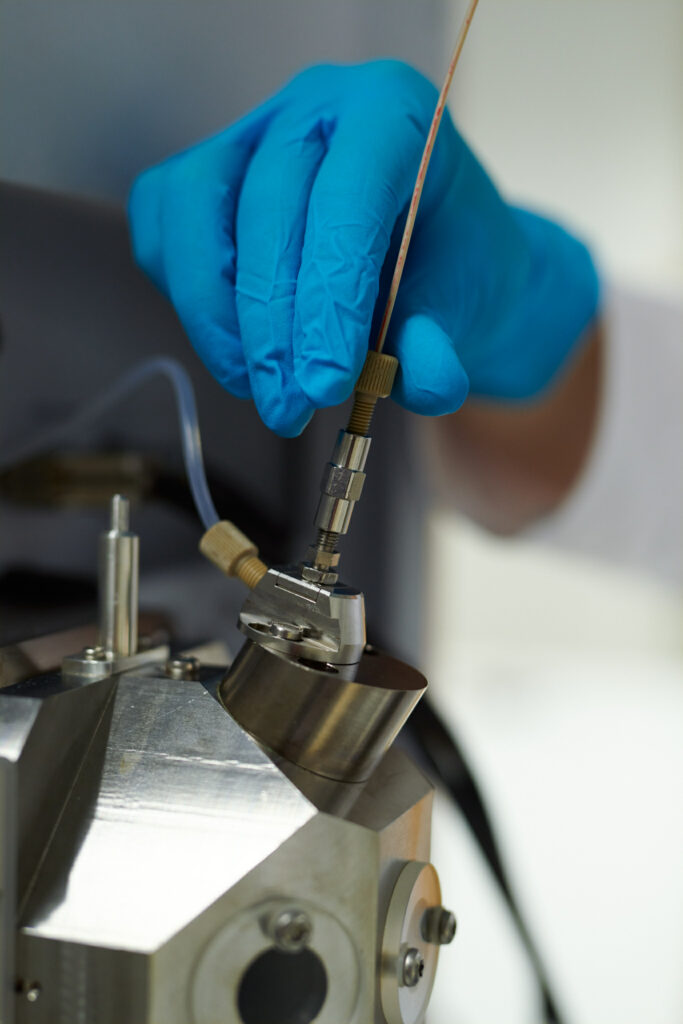
21. What is the biggest challenge for you when it comes to balancing family and career?
Being able to overcome the distance. As a Romanian, I often found the best career opportunities abroad. I do feel guilty when I miss family events or friends’ weddings.
22. How do you master this / these challenge(s)?
I try to plan my time so I can be with family and friends at least on some of these occasions. If there was something positive about the COVID pandemic, it was bringing more opening towards hybrid- and telework – this has the potential to benefit many people, in particular young and middle-aged women juggling with complex lives and responsibilities.
23. How often do you as a friend / partner / mother / daughter feel guilty when you have to meet a deadline – again?
I do sometimes experience feelings of guilt around some important deadlines, however I am lucky to have family and friends that understand that work is an important component of my life.
24. How did you imagine your future as a child? What profession did you want to pursue?
When I was a child I imagined myself studying history or art history, as I was interested in knowing more about other worlds and cultures. I saw myself working at historical sites and teaching children about ancient civilizations – mostly created in my imagination following history classes in middle school.
25. How do you keep your head clear when you are stressed?
By walking or jogging.
26. What is your favourite German word?
”Umarmen” – I think you can partially feel the hug when hearing the word.
27. What makes you most happy about the world?
When I see people support each other and pursue common goals.
28. What or who inspired you to become a pharmacist?
I chose Pharmacy studies because I wanted a job to help people feel better. As time passed, research became more attractive because it offers more options, less routine and challenges of higher complexity.

29. What worries you mostly about the world?
The poverty, the lack of medical care and access to education that unfortunately so many people still experience in parts of the world.
30. Your favourite TV series?
Criminal minds.
31. If you could travel in time: in which epoch and at which discovery or event would you have liked to have been there?
Witnessing the invention of the airplane – just to see the excitement of everyone when they realized that from now on people can fly.
32. What is your favourite place to relax from research during the pandemic?
The pandemic has taught many of us to be more appreciative of being outside. Hiking is even better as it’s also an investment in one’s health.

33. What surprised you most about the University of Münster?
The constant support and in general the great character of my research group mates. Research facilities and equipment are also impressive.

